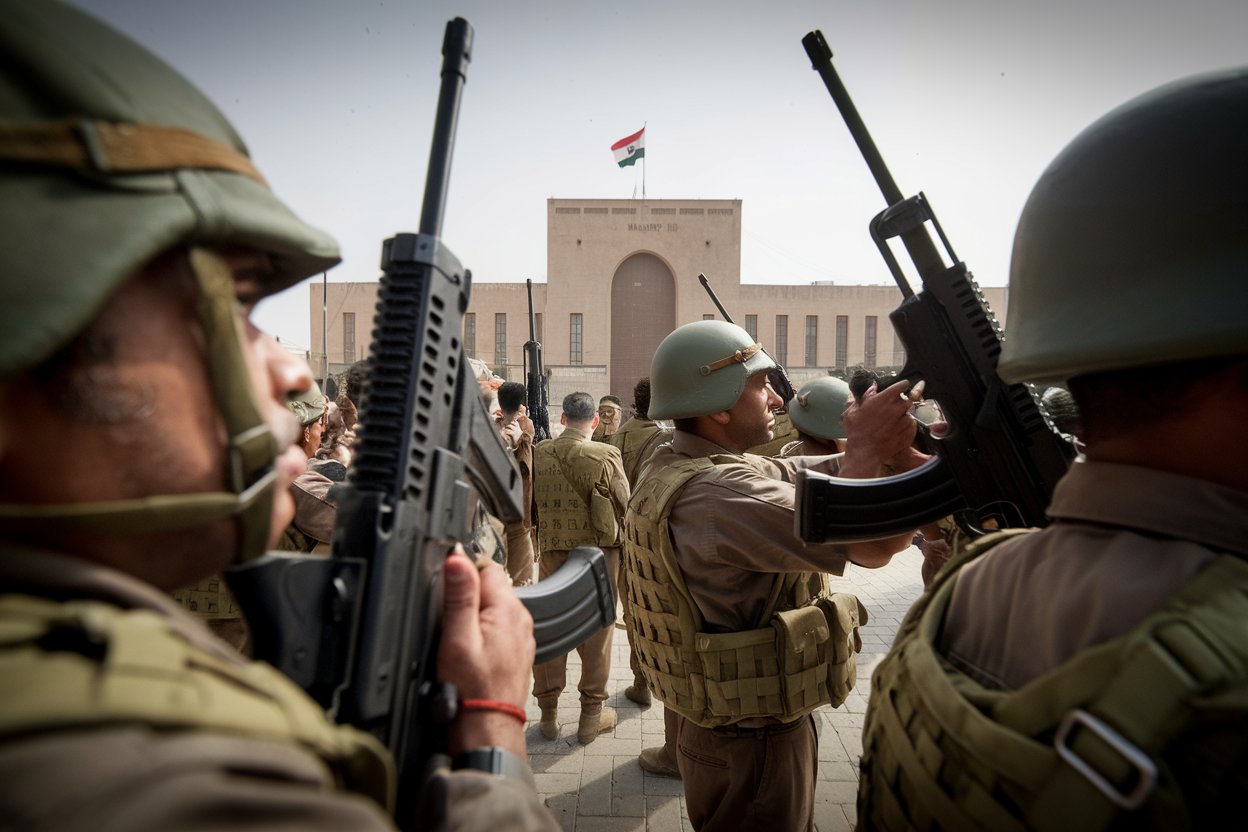
What happened during the November 1963 Iraqi Coup d'État? The November 1963 Iraqi Coup d'État marked a significant shift in Iraq's political landscape. On November 18, 1963, a faction within the Ba'ath Party, led by Abdul Salam Arif, overthrew the government of President Abdul Karim Qasim. This coup was fueled by internal conflicts within the Ba'ath Party and dissatisfaction with Qasim's policies. The result was a swift and violent change of power, leading to the establishment of a new government under Arif. Key events included the capture and execution of Qasim, the dissolution of the National Guard, and the reorganization of the military. This period was marked by political instability, power struggles, and a series of purges within the government and military. Understanding these events provides insight into Iraq's tumultuous history and the complex dynamics of its political factions.
Key Takeaways:
- The November 1963 Iraqi Coup D'État was a pivotal event led by the Ba'ath Party, shaping Iraq's political landscape and paving the way for Saddam Hussein's rise to power.
- The coup led to the establishment of a new government, marked by authoritarian rule and lasting impacts on Iraq's economy, society, and relations with other countries in the region.
Background of the November 1963 Iraqi Coup D'État
The November 1963 Iraqi Coup D'État was a significant event in Iraq's history. It marked a period of political upheaval and power struggles. Here are some key facts about this pivotal moment.
- The coup took place on November 18, 1963.
- It was led by the Ba'ath Party, which sought to overthrow the existing government.
- The coup was a response to the previous regime's policies and actions.
- The Ba'ath Party had previously been in power but was ousted in February 1963.
- The coup was relatively bloodless compared to other coups in the region.
- The Ba'ath Party's return to power marked a shift in Iraq's political landscape.
- The coup was supported by elements within the Iraqi military.
- The Ba'ath Party's ideology was based on Arab nationalism and socialism.
- The coup leaders included prominent figures such as Ahmed Hassan al-Bakr and Saddam Hussein.
- The coup led to the establishment of a new government under the Ba'ath Party's control.
Key Figures Involved in the Coup
Several key figures played crucial roles in the November 1963 Iraqi Coup D'État. These individuals were instrumental in planning and executing the coup.
- Ahmed Hassan al-Bakr was a leading figure in the Ba'ath Party and played a central role in the coup.
- Saddam Hussein, who would later become Iraq's president, was also involved in the coup.
- Ali Salih al-Sa'di was another prominent Ba'athist who supported the coup.
- The coup leaders had connections with other Arab nationalist movements in the region.
- The Ba'ath Party's leadership was divided into different factions, each with its own agenda.
Impact on Iraq's Political Landscape
The November 1963 coup had a lasting impact on Iraq's political landscape. It set the stage for future conflicts and power struggles within the country.
- The coup led to the establishment of a new government under Ba'ath Party control.
- The Ba'ath Party implemented policies aimed at modernizing Iraq's economy and society.
- The coup resulted in the suppression of political opposition and dissent.
- The Ba'ath Party's rule was characterized by authoritarianism and centralization of power.
- The coup had a significant impact on Iraq's relations with other countries in the region.
Legacy of the November 1963 Coup
The legacy of the November 1963 Iraqi Coup D'État continues to be felt in Iraq today. It shaped the country's political trajectory and influenced subsequent events.
- The coup paved the way for Saddam Hussein's rise to power.
- The Ba'ath Party's rule left a lasting impact on Iraq's political and social institutions.
- The coup is remembered as a turning point in Iraq's history.
- The events of November 1963 are still studied by historians and political analysts.
- The coup serves as a reminder of the complexities and challenges of Iraq's political landscape.
Reflecting on November 1963
The November 1963 Iraqi Coup D'État marked a pivotal moment in Iraq's history. It reshaped the political landscape, leading to significant changes in governance and power dynamics. The coup, orchestrated by the Ba'ath Party, saw the overthrow of Prime Minister Abdul Karim Qasim, who had been in power since 1958. This event not only altered Iraq's internal politics but also had broader implications for the Middle East.
Understanding these historical events helps us grasp the complexities of modern-day Iraq. The coup's aftermath included shifts in alliances, economic policies, and social structures. It also set the stage for future conflicts and power struggles within the region.
By examining the facts surrounding the November 1963 coup, we gain insight into the forces that have shaped Iraq's past and continue to influence its present. History, after all, is a powerful teacher.
Frequently Asked Questions
Was this page helpful?
Our commitment to delivering trustworthy and engaging content is at the heart of what we do. Each fact on our site is contributed by real users like you, bringing a wealth of diverse insights and information. To ensure the highest standards of accuracy and reliability, our dedicated editors meticulously review each submission. This process guarantees that the facts we share are not only fascinating but also credible. Trust in our commitment to quality and authenticity as you explore and learn with us.
